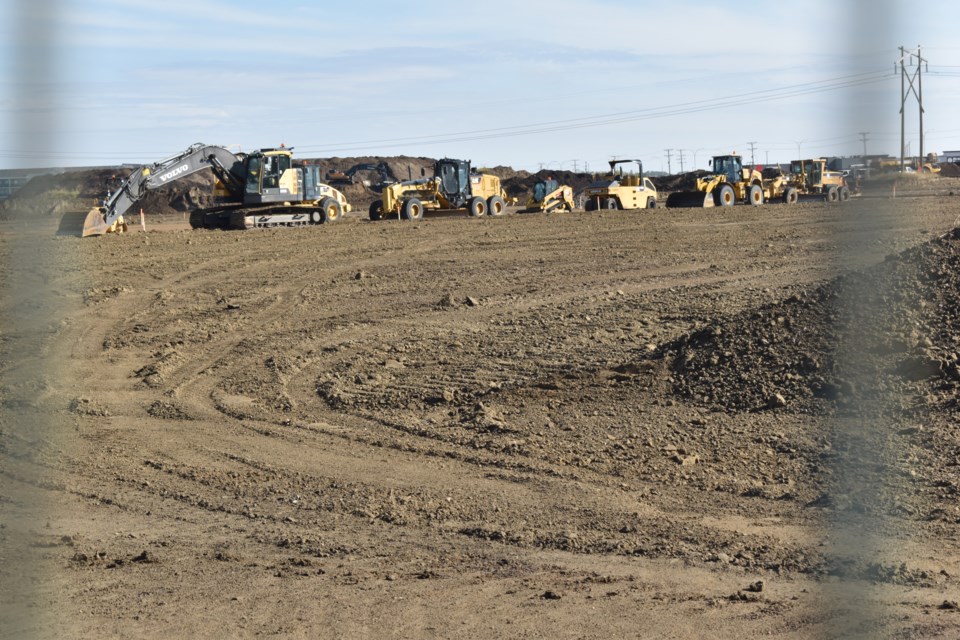SASKATOON — Mayor Charlie Clark said Conservative Leader Pierre Poilievre’s plan of pulling money from the Housing Accelerator Fund if the Tories were to form a government would jeopardize the projects that would address the housing crisis in the city.
The HAF is a program where federal tax dollars are allotted to support local and municipal governments in building more housing units faster, increasing the supply of affordable homes, and developing diverse and climate-resilient communities.
“These projects would be in jeopardy without the support of the HAF funding. I am proud that our staff and housing developers have been able to turn around this HAF funding so quickly to bring these badly needed new units on stream,” said Clark.
“Cancelling the funding now would set back this momentum, put these new units at risk, and create potential legal and financial risks that will consume time and resources that we can't afford given the commitments that have already been made.”
The HAF is a deal between the City of Saskatoon and the federal government. There is $41,325,000 in funding for zoning reform, development cost waivers for affordable housing, backyard suite programs, and the adoption of e-permitting and expediting housing approvals.
Poilievre announced last week that if elected as the country’s next prime minister, he would cancel funding the program and Canada Infrastructure Fund to pay for eliminating the five per cent government sales tax on new homes under $1 million.
However, The Tories came up short in having an early election after failing to get the no-confidence vote to oust Prime Minister Justin Trudeau, even after Bloc Quebecois Leader François Blanche and 32 members pulled their support from the Liberal Party Leader.
The Tories, with 119 members, and Bloc Quebecois only had 152 seats against the 178 of the Liberals and Jagmeet Singh’s NDP. There are also four Independents, two Greens and two vacant seats in Parliament. The federal election is set on or before Oct. 20, 2025.
Clark, who will not seek a third term as the city’s chief executive, is answering the Minister of Housing, Infrastructure and Communities Sean Fraser's letter for feedback on the HAF’s impact in Saskatoon. He expressed concern about Poilievre’s plan to cancel the HAF.
“For context, Saskatoon is in a housing crisis, and we desperately need more housing supply. Population statistics released this past summer indicate that we have had an increase of 25,000 to 30,000 people in just the last two years,” said Clark.
“In that same time, less than 6,000 housing units have been created. Rental vacancy has dropped below two per cent city-wide and is below one per cent in certain areas. Housing costs continue to rise as demand far outstrips supply."
HAF-funded houses
Clark said the city has already used up most of the $41,325,000 HAF money towards incentives for the construction of new affordable housing units, where the city had already issued a call for proposals constructing new affordable below-market housing units.
“Costs of construction have been identified as a major barrier to getting new supply built, especially more entry-level and affordable housing. In order to help bring down the costs of construction, the city offered a capital grant of up to $27,000 per newly proposed affordable rental unit, in either affordable or mixed market projects, funded fully from the HAF funding,” added Clark.
“As a result, in September, City Council unanimously approved incentives for projects that will result in a total of 1,609 new rental units, including 501 units that will be incentivized as below-market rent affordable units. These projects include a significant number of units to be developed by Indigenous governments and organizations that are prioritizing Indigenous and culturally appropriate housing solutions.”
The city council approved affordable housing incentive programs funded by other levels of government, such as the National Indigenous Collaborative Housing Inc., the Canada Mortgage and Housing Corp., Indigenous Services Canada, and the Saskatchewan Housing Corp.
Clark, last week, said it is already too late to change what the city had done as they had already leveraged HAF money to four city-owned affordable housing development sites. Proposals to develop the site are accepted until Dec. 13, 2024.
“The city has already leveraged [HAF money] towards getting commitments for over 1,600 units of badly needed new rental housing. This includes over 500 units of below-market housing that will only be built with incentives from the Housing Accelerator Fund funding. Cancelling this program would almost certainly mean cancelling most or all of these 1,600 new units, as they are tied together in the same developments,” said Clark.
In his letter to Clark, Fraser said HAF is a $41.3M deal between the federal government and the City of Saskatoon, with the money going to commitments of making it easier and faster to build homes.
“Home builders have told us that the faster they can obtain approvals, the faster they can build homes. By your analysis tells us that this funding will lead to an additional 25,240 permits issued for new homes in your community over a 10-year period. I would also encourage you to take this opportunity to inform members of your community about the impact this cut would have to your plans to build more homes,” said Fraser.




